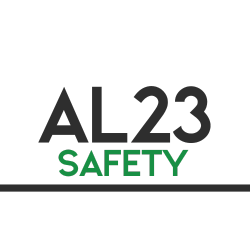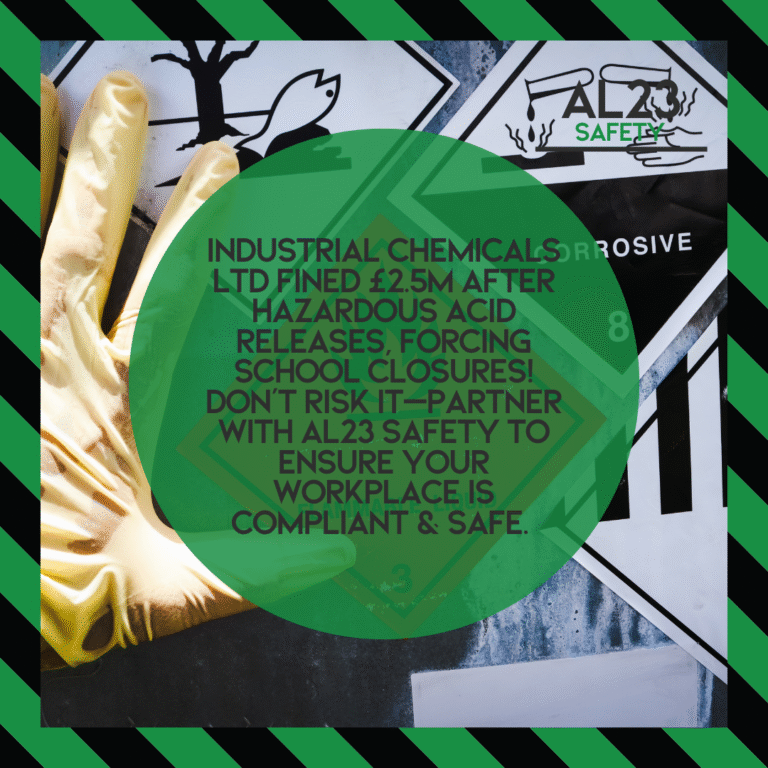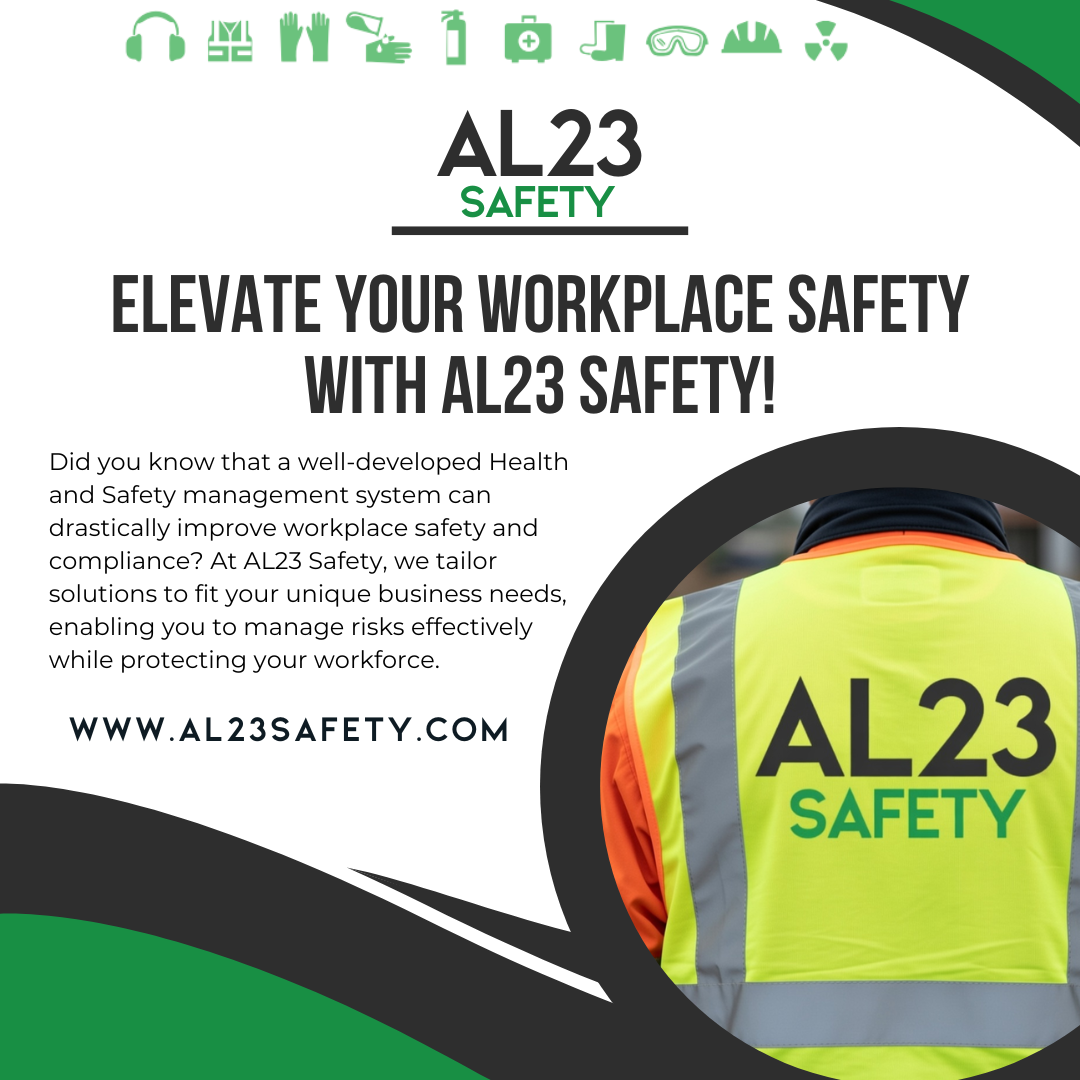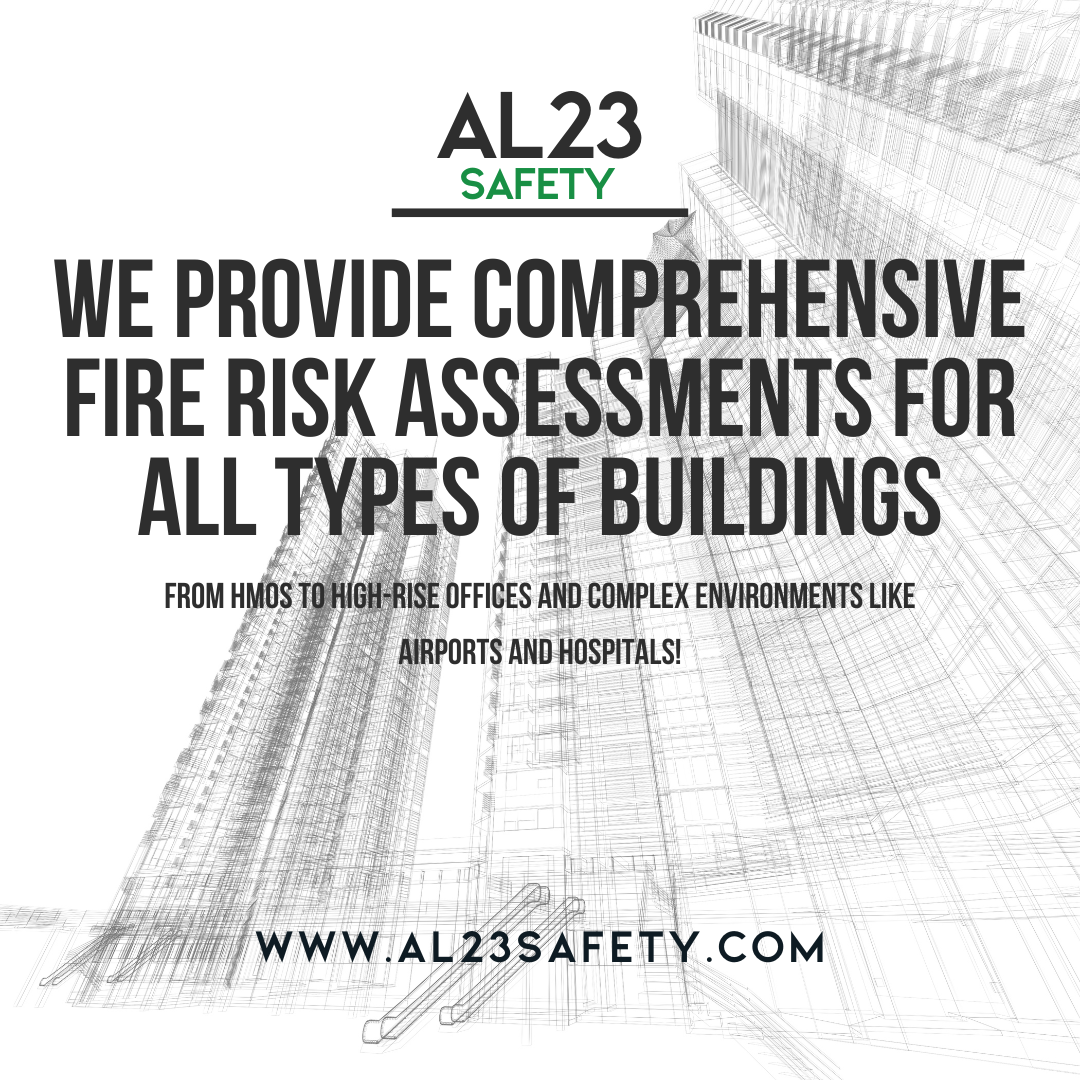Why Preventative Maintenance Safety Should Be Your Top Priority
Preventative health and safety maintenance safety has never been more critical for UK businesses operating with hazardous materials. The recent case of Industrial Chemicals Ltd demonstrates the devastating consequences when maintenance protocols fail. This West Thurrock-based company recently faced a staggering £2.5 million fine following two serious incidents involving dangerous chemical releases that put workers and the public at severe risk.
Let’s examine what went wrong and the vital preventative maintenance safety lessons every business must learn from this cautionary tale.
The Incidents That Led to a Multi-Million Pound Fine
Incident 1: The Hydrochloric Acid Release
On 6th January 2020, a catastrophic failure occurred at Industrial Chemicals Ltd’s West Thurrock facility. Poorly maintained equipment led to the uncontrolled release of large quantities of hydrochloric acid, creating a toxic gas cloud that spread beyond the facility boundaries. The situation became so dangerous that local schools were forced to close, disrupting education and causing community panic.
The Health and Safety Executive (HSE) investigation revealed that this preventative health and safety maintenance safety failure centred around inadequate pipework inspections—a basic yet crucial aspect of chemical handling safety protocols.
Incident 2: The Sulphuric Acid Leak
Just months later, on 29th August 2020, another serious breach of preventative maintenance safety occurred when 87 cubic metres of sulphuric acid leaked into the atmosphere. The cause? Once again, pipework that had not been properly inspected or maintained.
Both incidents could have caused severe lung damage and other serious health hazards to workers and nearby residents. Both were entirely preventable with proper maintenance systems.
Critical Preventative Maintenance Safety Lessons to Implement Today
1. Regular Equipment Inspection Is Non-Negotiable
The HSE investigation highlighted that Industrial Chemicals Ltd failed to implement adequate inspection regimes. For businesses handling hazardous substances, comprehensive equipment inspections must be scheduled, documented, and rigorously followed.
2. Maintenance Protocols Must Be Substance-Specific
Different chemicals require different handling and containment methods. Your preventative maintenance safety plan must account for the specific properties of each substance used in your operations, with particular attention to highly corrosive materials like acids.
3. Staff Training Is Essential for Preventative Maintenance Safety
Employees at all levels need to understand the importance of maintenance protocols and how to identify potential issues before they become catastrophic failures.
4. Documentation Creates Accountability
One clear failure at Industrial Chemicals Ltd was the lack of proper documentation. Comprehensive records of all inspections, maintenance activities, and repairs create accountability and ensure nothing falls through the cracks.
5. Risk Assessments Must Include Equipment Degradation
Many businesses conduct initial risk assessments but fail to account for how equipment degrades over time. Your preventative maintenance safety plan should include progressive deterioration factors.
6. Emergency Response Plans Save Lives
When containment fails, a well-rehearsed emergency response plan can mean the difference between a manageable incident and a community-wide disaster, as witnessed in the West Thurrock case.
7. Legal Compliance Is Just the Beginning
The joint prosecution by the HSE and Environment Agency shows that multiple regulatory bodies take these violations seriously. Meeting minimum requirements isn’t enough—a robust preventative maintenance safety culture must exceed basic compliance.
How AL23 Safety Can Transform Your Maintenance Protocols
At AL23 Safety, we specialise in creating bespoke preventative maintenance safety systems that protect your workers, community, and business reputation. Our comprehensive approach includes:
- Tailored Risk Assessments: We identify potential failure points specific to your operation
- Customised Maintenance Schedules: Developed to address your unique equipment and chemical handling needs
- Staff Training Programmes: Ensuring your team understands the critical importance of preventative maintenance safety
- Documentation Systems: Creating accountability and providing evidence of compliance
- Emergency Response Planning: Preparing for worst-case scenarios while working to prevent them
Beyond Legal Requirements: The Business Case for Preventative Maintenance Safety
Investing in proper preventative maintenance safety measures isn’t just about avoiding fines—though £2.5 million would certainly impact most businesses. It’s also about:
- Protecting your company reputation: Recovery from safety incidents can take years
- Maintaining operational continuity: Shutdowns after incidents can be lengthy and costly
- Reducing insurance premiums: Demonstrated safety protocols can lower your costs
- Boosting worker confidence: Employees perform better when they feel safe
- Community relations: Being known as a responsible operator builds trust
Take Action Now Before It’s Too Late
The Industrial Chemicals Ltd case serves as a powerful reminder that preventative maintenance safety cannot be an afterthought. With increasingly stringent regulations and substantial penalties for non-compliance, businesses handling hazardous materials must prioritise maintenance protocols.
Don’t wait for a catastrophic failure to highlight gaps in your preventative maintenance safety systems. Contact AL23 Safety today for a comprehensive assessment of your current protocols and expert guidance on creating a safer, more compliant workplace.
Our dedicated team understands the unique challenges of high-risk industries and is committed to providing preventative maintenance safety solutions that work for your specific operation.
Together, we can protect your workers, your community, and your business future.
This blog post is based on actual events. The Industrial Chemicals Ltd case referenced occurred in April 2025 and serves as an important lesson for all businesses operating with hazardous materials.



